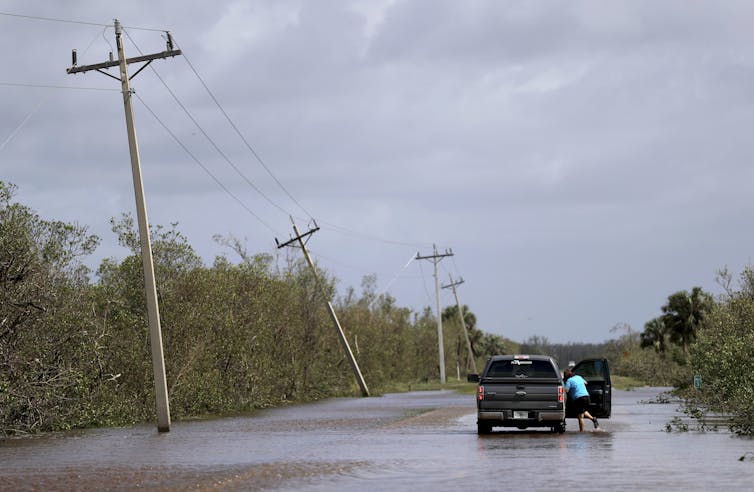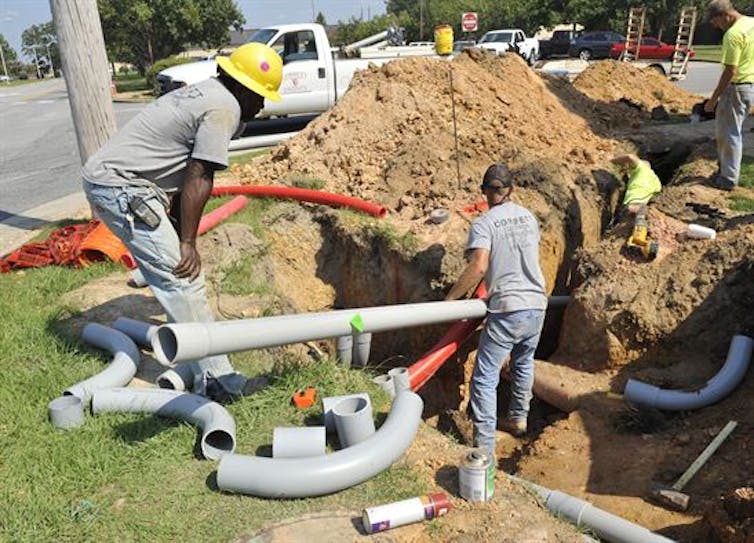Results 71 to 80 of 94
Thread Information
Users Browsing this Thread
There are currently 1 users browsing this thread. (0 members and 1 guests)
-
07-02-2018, 07:31 PM #71
So now you know why Americans complain about utility rates in North Carolina. 98% of North Carolina counties at the time of the study were municipal government-owned utilities. Only 2 counties, Mecklenburg (Charlotte) and Wake County (Raleigh) were private utilities regulated by the North Carolina Utilities Commission.
A Nation Without Borders Is Not A Nation - Ronald Reagan
Save America, Deport Congress! - Judy
Support our FIGHT AGAINST illegal immigration & Amnesty by joining our E-mail Alerts at https://eepurl.com/cktGTn
-
07-02-2018, 07:57 PM #72Senior Member

- Join Date
- Sep 2017
- Location
- San Bernardino, CA
- Posts
- 1,810
-
07-02-2018, 08:05 PM #73A Nation Without Borders Is Not A Nation - Ronald Reagan
Save America, Deport Congress! - Judy
Support our FIGHT AGAINST illegal immigration & Amnesty by joining our E-mail Alerts at https://eepurl.com/cktGTn
-
07-02-2018, 10:18 PM #74
Residential electricity rates in North Carolina
- Residential electricity rates in NC [1]
- Residential electricity rates in North Carolina average 10.91˘/kWh, which ranks the state 32nd in the nation.
- The average residential electricity rate of 10.91˘/kWh in NC is 8.16% less than the national average residential rate of 11.88˘/kWh.
- The approximate range of residential electricity rates in the U.S. is 8.37˘/kWh to 37.34˘/kWh.
-
- https://www.electricitylocal.com/states/north-carolina/
NO AMNESTY
Don't reward the criminal actions of millions of illegal aliens by giving them citizenship.
Sign in and post comments here.
Please support our fight against illegal immigration by joining ALIPAC's email alerts here https://eepurl.com/cktGTn
-
07-02-2018, 10:18 PM #75Senior Member

- Join Date
- Sep 2017
- Location
- San Bernardino, CA
- Posts
- 1,810
As JD2s article says, the utilities don't do it where it is unprofitable. So who is going to put up the money needed to underground Puerto Rico's utilities? As JD2s article notes, it may take 25 years to complete. So how long can Puerto Ricans wait? It isn't a practical solution.
-
07-02-2018, 10:23 PM #76
 Source: U.S. Energy Information Administration, State Energy Data System and Electric Power Annual
Source: U.S. Energy Information Administration, State Energy Data System and Electric Power Annual
NO AMNESTY
Don't reward the criminal actions of millions of illegal aliens by giving them citizenship.
Sign in and post comments here.
Please support our fight against illegal immigration by joining ALIPAC's email alerts here https://eepurl.com/cktGTn
-
07-03-2018, 02:42 AM #77A Nation Without Borders Is Not A Nation - Ronald Reagan
Save America, Deport Congress! - Judy
Support our FIGHT AGAINST illegal immigration & Amnesty by joining our E-mail Alerts at https://eepurl.com/cktGTn
-
07-03-2018, 11:26 AM #78Senior Member

- Join Date
- Sep 2017
- Location
- San Bernardino, CA
- Posts
- 1,810
-
07-03-2018, 11:52 AM #79
Burying power lines is absolutely the way to do things.
A Nation Without Borders Is Not A Nation - Ronald Reagan
Save America, Deport Congress! - Judy
Support our FIGHT AGAINST illegal immigration & Amnesty by joining our E-mail Alerts at https://eepurl.com/cktGTn
-
07-04-2018, 06:37 AM #80Senior Member

- Join Date
- Jan 2018
- Posts
- 880
Similar Threads
-
If Puerto Rico Becomes America's 51 State....
By sacredrage in forum General DiscussionReplies: 3Last Post: 12-13-2012, 11:16 AM -
George Will: GOP Should Support State of Puerto Rico
By Texas2step in forum General DiscussionReplies: 2Last Post: 07-18-2010, 10:15 PM -
Alert...Call to action...Puerto Rico – 51st State?
By Rai7965 in forum illegal immigration News Stories & ReportsReplies: 3Last Post: 04-28-2010, 06:20 PM -
Citizen's Petition Against Making Puerto Rico our 51st State
By Texas2step in forum News & Releases from Other GroupsReplies: 6Last Post: 06-19-2009, 04:51 AM -
Puerto-rico another lone star state?
By agrneydgrl in forum illegal immigration News Stories & ReportsReplies: 7Last Post: 09-18-2008, 10:46 PM


 62Likes
62Likes LinkBack URL
LinkBack URL About LinkBacks
About LinkBacks







 Reply With Quote
Reply With Quote


Illegal immigration is costing American hospitals billions of...
04-28-2024, 07:04 PM in General Discussion